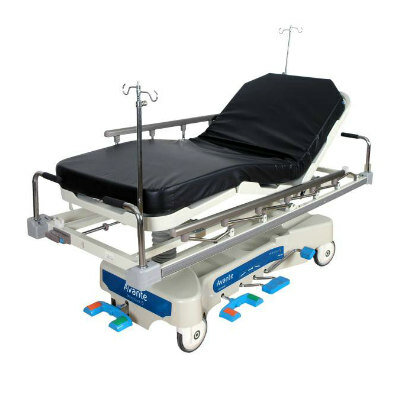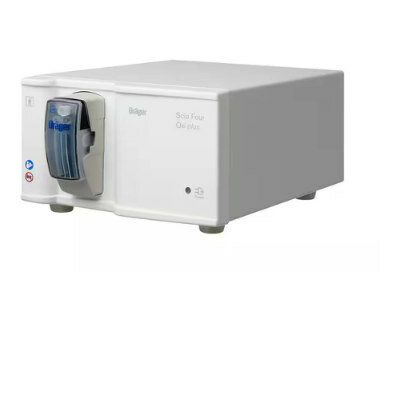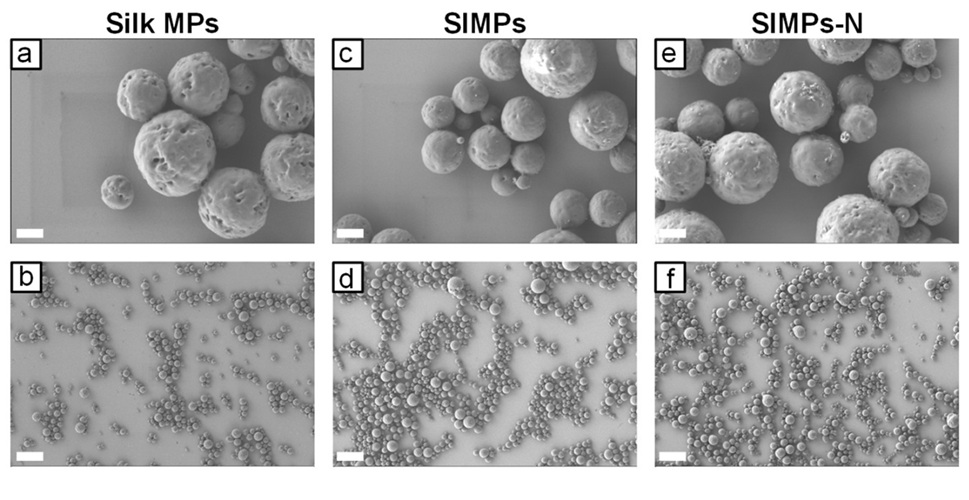Ultrapotent Bispecific Antibodies That Can Simultaneously Bind to Two Different Antigens Neutralize SARS-CoV-2 Variants
|
By HospiMedica International staff writers Posted on 15 Sep 2021 |
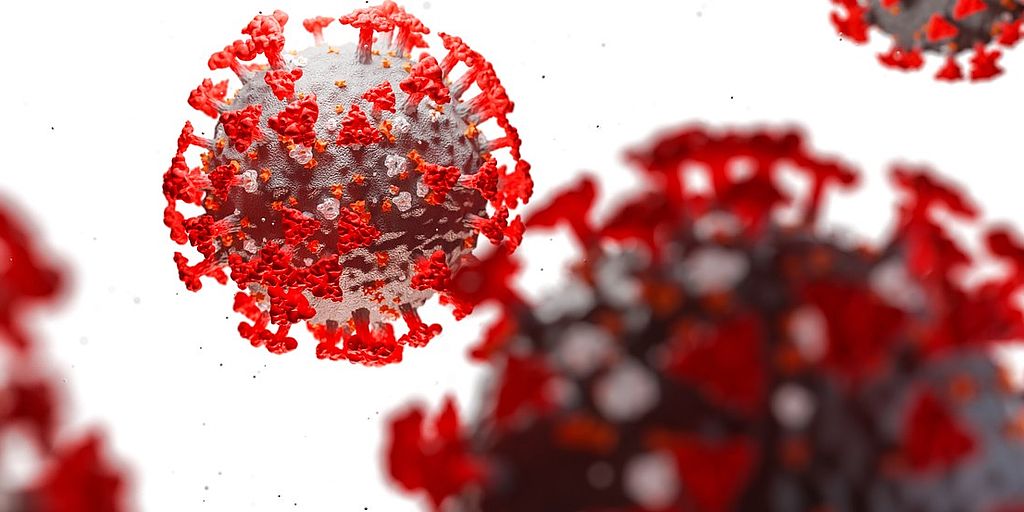
Illustration
Researchers have developed bispecific antibodies - antibodies that can simultaneously bind to two different antigens - that target multiple regions of the SARS-CoV-2 spike protein and neutralize virus variants of concern.
The team of researchers from the National Institute of Allergy and Infectious Diseases (NIAID; Bethesda, MD, USA) isolated monoclonal antibodies targeting the SARS-CoV-2 spike protein from donors who had recovered from COVID-19. Pairs of potent monoclonal antibodies that bound distinct regions of the spike protein were combined into bispecific antibodies. These bispecific antibodies prevented SARS-CoV-2 variants of concern from infecting cells in vitro and prevented disease in hamsters infected with SARS-CoV-2.
Currently, COVID-19 antibody treatments work by sending in a cocktail of individual monoclonal antibodies to target various parts of the virus. However, the NIAID researchers showed that combining some of these monoclonal antibodies into a new bispecific antibody can create stronger antibodies that are more potent than the monoclonal cocktails - one bispecific antibody they tested, in particular, was 100 times more potent against the virus than a cocktail of its monoclonal parents.
Two of the bispecific antibodies neutralized the original virus as well as the Alpha, Beta, Gamma, and Delta variants. In hamsters infected with SARS-CoV-2, two of the bispecific antibodies protected the animals from clinical disease. The researchers developed the bispecific antibodies from a pool of 216 monoclonal antibodies that target SARS-CoV-2 from convalescent COVID-19 patients, screening them for potency against the virus. The bispecific antibodies may be especially effective against the variants because they bind to non-overlapping areas of the viral spike and have limited contact with areas on the spike where variant mutations have occurred.
“In the face of rapidly emerging SARS-CoV-2 variants that challenge our efforts to end the pandemic, our findings support the further exploration of bispecific antibodies that strategically combine antibody pairs as new tools to treat COVID-19,” stated Hyeseon Cho from the team of NIAID researchers.
Related Links:
NIAID
The team of researchers from the National Institute of Allergy and Infectious Diseases (NIAID; Bethesda, MD, USA) isolated monoclonal antibodies targeting the SARS-CoV-2 spike protein from donors who had recovered from COVID-19. Pairs of potent monoclonal antibodies that bound distinct regions of the spike protein were combined into bispecific antibodies. These bispecific antibodies prevented SARS-CoV-2 variants of concern from infecting cells in vitro and prevented disease in hamsters infected with SARS-CoV-2.
Currently, COVID-19 antibody treatments work by sending in a cocktail of individual monoclonal antibodies to target various parts of the virus. However, the NIAID researchers showed that combining some of these monoclonal antibodies into a new bispecific antibody can create stronger antibodies that are more potent than the monoclonal cocktails - one bispecific antibody they tested, in particular, was 100 times more potent against the virus than a cocktail of its monoclonal parents.
Two of the bispecific antibodies neutralized the original virus as well as the Alpha, Beta, Gamma, and Delta variants. In hamsters infected with SARS-CoV-2, two of the bispecific antibodies protected the animals from clinical disease. The researchers developed the bispecific antibodies from a pool of 216 monoclonal antibodies that target SARS-CoV-2 from convalescent COVID-19 patients, screening them for potency against the virus. The bispecific antibodies may be especially effective against the variants because they bind to non-overlapping areas of the viral spike and have limited contact with areas on the spike where variant mutations have occurred.
“In the face of rapidly emerging SARS-CoV-2 variants that challenge our efforts to end the pandemic, our findings support the further exploration of bispecific antibodies that strategically combine antibody pairs as new tools to treat COVID-19,” stated Hyeseon Cho from the team of NIAID researchers.
Related Links:
NIAID
Latest COVID-19 News
- Low-Cost System Detects SARS-CoV-2 Virus in Hospital Air Using High-Tech Bubbles
- World's First Inhalable COVID-19 Vaccine Approved in China
- COVID-19 Vaccine Patch Fights SARS-CoV-2 Variants Better than Needles
- Blood Viscosity Testing Can Predict Risk of Death in Hospitalized COVID-19 Patients
- ‘Covid Computer’ Uses AI to Detect COVID-19 from Chest CT Scans
- MRI Lung-Imaging Technique Shows Cause of Long-COVID Symptoms
- Chest CT Scans of COVID-19 Patients Could Help Distinguish Between SARS-CoV-2 Variants
- Specialized MRI Detects Lung Abnormalities in Non-Hospitalized Long COVID Patients
- AI Algorithm Identifies Hospitalized Patients at Highest Risk of Dying From COVID-19
- Sweat Sensor Detects Key Biomarkers That Provide Early Warning of COVID-19 and Flu
- Study Assesses Impact of COVID-19 on Ventilation/Perfusion Scintigraphy
- CT Imaging Study Finds Vaccination Reduces Risk of COVID-19 Associated Pulmonary Embolism
- Third Day in Hospital a ‘Tipping Point’ in Severity of COVID-19 Pneumonia
- Longer Interval Between COVID-19 Vaccines Generates Up to Nine Times as Many Antibodies
- AI Model for Monitoring COVID-19 Predicts Mortality Within First 30 Days of Admission
- AI Predicts COVID Prognosis at Near-Expert Level Based Off CT Scans
Channels
Critical Care
view channel
AI Interpretability Tool for Photographed ECG Images Offers Pixel-Level Precision
The electrocardiogram (ECG) is a crucial diagnostic tool in modern medicine, used to detect heart conditions such as arrhythmias and structural abnormalities. Every year, millions of ECGs are performed... Read more
AI-ECG Tools Can Identify Heart Muscle Weakness in Women Before Pregnancy
Each year, some mothers die from heart-related issues after childbirth, with many of these deaths being preventable. Screening for heart weakness before pregnancy could be crucial in identifying women... Read moreSurgical Techniques
view channel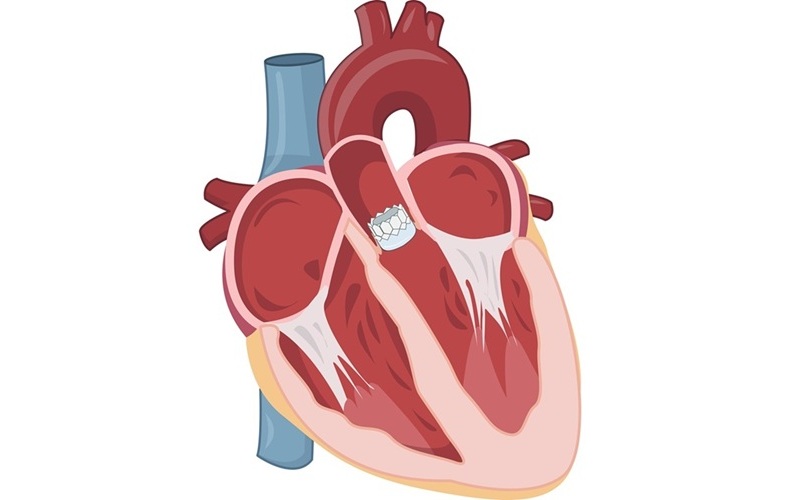
Early TAVR Intervention Reduces Cardiovascular Events in Asymptomatic Aortic Stenosis Patients
Each year, approximately 300,000 Americans are diagnosed with aortic stenosis (AS), a serious condition that results from the narrowing or blockage of the aortic valve in the heart. Two common treatments... Read more
New Procedure Found Safe and Effective for Patients Undergoing Transcatheter Mitral Valve Replacement
In the United States, approximately four million people suffer from mitral valve regurgitation, the most common type of heart valve disease. As an alternative to open-heart surgery, transcatheter mitral... Read more
No-Touch Vein Harvesting Reduces Graft Failure Risk for Heart Bypass Patients
A coronary artery bypass graft (CABG) is a surgical procedure used to enhance blood flow and oxygen supply to the heart in individuals with coronary heart disease. During the procedure, a healthy blood... Read more
DNA Origami Improves Imaging of Dense Pancreatic Tissue for Cancer Detection and Treatment
One of the challenges of fighting pancreatic cancer is finding ways to penetrate the organ’s dense tissue to define the margins between malignant and normal tissue. Now, a new study uses DNA origami structures... Read morePatient Care
view channel
Portable Biosensor Platform to Reduce Hospital-Acquired Infections
Approximately 4 million patients in the European Union acquire healthcare-associated infections (HAIs) or nosocomial infections each year, with around 37,000 deaths directly resulting from these infections,... Read moreFirst-Of-Its-Kind Portable Germicidal Light Technology Disinfects High-Touch Clinical Surfaces in Seconds
Reducing healthcare-acquired infections (HAIs) remains a pressing issue within global healthcare systems. In the United States alone, 1.7 million patients contract HAIs annually, leading to approximately... Read more
Surgical Capacity Optimization Solution Helps Hospitals Boost OR Utilization
An innovative solution has the capability to transform surgical capacity utilization by targeting the root cause of surgical block time inefficiencies. Fujitsu Limited’s (Tokyo, Japan) Surgical Capacity... Read more
Game-Changing Innovation in Surgical Instrument Sterilization Significantly Improves OR Throughput
A groundbreaking innovation enables hospitals to significantly improve instrument processing time and throughput in operating rooms (ORs) and sterile processing departments. Turbett Surgical, Inc.... Read moreHealth IT
view channel
Printable Molecule-Selective Nanoparticles Enable Mass Production of Wearable Biosensors
The future of medicine is likely to focus on the personalization of healthcare—understanding exactly what an individual requires and delivering the appropriate combination of nutrients, metabolites, and... Read more
Smartwatches Could Detect Congestive Heart Failure
Diagnosing congestive heart failure (CHF) typically requires expensive and time-consuming imaging techniques like echocardiography, also known as cardiac ultrasound. Previously, detecting CHF by analyzing... Read moreBusiness
view channel
Expanded Collaboration to Transform OR Technology Through AI and Automation
The expansion of an existing collaboration between three leading companies aims to develop artificial intelligence (AI)-driven solutions for smart operating rooms with sophisticated monitoring and automation.... Read more









